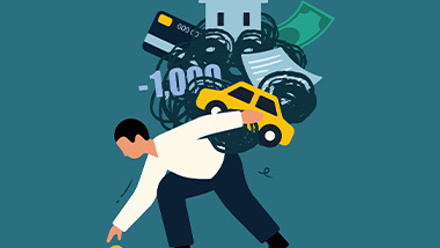Want to fight inflation? Bonuses and incentives could be the answer
Inflation is hitting all-time highs in countries across the world. Some predictions put the figure above 10% and say it will hit the poorest homes the hardest. The Institute for Fiscal Studies, meanwhile, expects inflation to hit 14% in the UK, while, in the US, financial experts say it will be closer to 9%. Other countries, like Turkey, have predicted a more worrying figure of 36.1%.
So, with inflation, the cost of living goes up and people arealready feeling the effects. Mortgage repayments have gone up, petrol prices have rocketed and gas and electric prices are reaching unthinkable heights, causing stress and worry.
In these times of financial crisis, companies can help their employees reduce their outgoings through benefits and incentives, but what are the best, or most common, ones to choose? Here are five tips on just some of the benefits being offered by companies today.
1. Signing on bonus
After the great resignation came the great desperation, or this is how it seems to outsiders looking in on business practices. Things were already problematic in the UK within the health sector, with nurses leaving the profession in high numbers. Of course, roles that need to be filled by particular skill sets are always going to be hard to fill, but some companies think they have found the answer to attracting and retaining employees – a signing-on bonus. Forbes reports that some companies are offering $100,000 bonuses to joiners. Although this is an extreme example, Forbes says this practice is becoming more and more common.
2. 13th month wage
This sounds simple, but it depends on where an employee is located in the world, or what company they work for. In some countries, especially in South America, a 13th month wage is mandatory, whereas in other countries, like the UK, this bonus is unheard of. Typically, the 13th month wage is paid in December to help with Xmas shopping, but this isn’t always the case. Some countries might roll out the bonus in instalments over two months, some over a year, so there’s no one way in which it is executed.
3. Profit sharing - often overlooked
This is an incentive that has been around for a while, but is often overlooked. Put simply, employees own some share capital of the business, so the better the company does, the more money they receive. The advantages of such a scheme can include employees incentivised to be more productive and feeling more connected to the company, but at the same time earning a little more. These schemes can become complicated with tax issues and administration, so here’s what legal firm Harper James says about them. For a real world of example of how one can work, take a look at Chinese electronics firm Huawei's profit share scheme.
4. Health and wellness
Many companies will offer a discount or free gym memberships to employees. Some might have an in-house gym. Or hold fun runs or games (such as 5-a-side football).
5. Insurance and pensions are a top perk
Employment review company Glassdoor say that “57% of job candidates report benefits and perks are among their top considerations before accepting a job” and list health insurance and pension plans in their top five benefit packages in the US. While insurance and pensions don’t work in the same way in the UK, but there companies are offer like life assurance, private medical insurance, and health cash plans.
Supplied by REBA Associate Member, Benify
Benify offers the market's leading global benefits and total reward platform.








